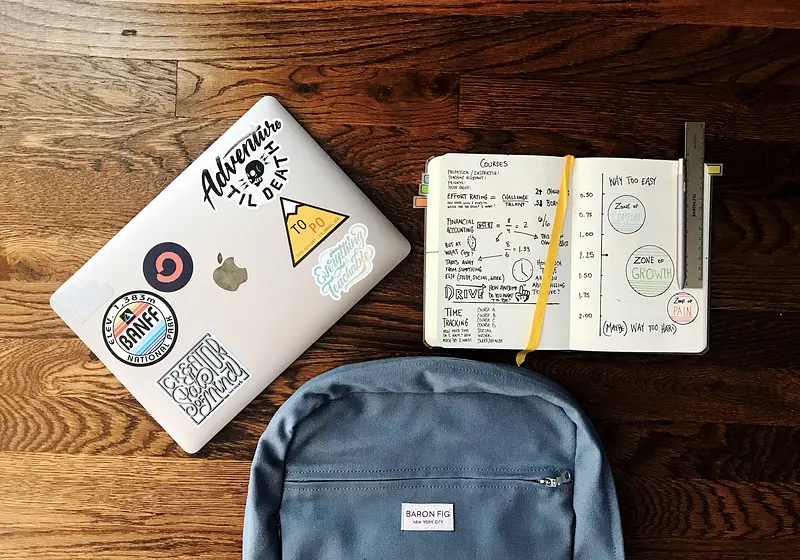Studying is an inevitable part of every student's life. Yet, despite being something we all have to go through, few of us know how to study in a way that will actually help us. More often than not, we find ourselves sitting at a desk, and quickly become distracted by our phones, or a conversation with a friend. This can lead to wasted study time and feelings of inadequacy and stress, which can in turn negatively affect exam performance.
If this is something you relate to, don't worry! The good thing about studying is that it's something that you can get better at with practice and hard work. This article will suggest eleven tips for you to take up this semester to help utilize your time effectively and make your studying pay off.

Image Credit: Cheysinpvmnt from Giphy
Let us slide into your dms 🥰
Get notified of top trending articles like this one every week! (we won't spam you)1. Establish a Schedule
Before you begin the actual process of studying, establish a schedule and work out in advance what your study plan is.
If you're someone who finds comfort in being highly organised, you can make a schedule for a few weeks or a month in advance, so you know exactly what you'll be doing and when. However, this is not essential — it's completely fine to only plan what you're going to be doing the week or even the day before. The important thing is that there's intention behind your studies, and it's not something you're simply making up as you go along.
Planning a set of tasks that you're going to do will help prevent procrastination and provide you with a specific goal to work towards, instead of just a general vague aim to study that's easy to neglect.
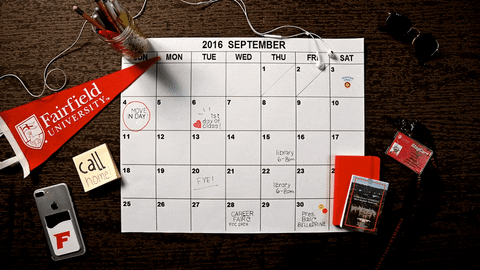
Image Credit: Fairfieldu from Giphy

Take the Quiz: Which college major suits you?
Find out which college major aligns perfectly with your passions, strengths, and future dreams!
2. Figure Out How You Learn Best
How do you best absorb information? Is it through cue cards? Short, memorable rhymes? Posters stuck around the house?
There are dozens of different ways to learn information, so it's important to figure out which works best for you. It may be just one specific method, such as mindmaps, or a combination of a few.
Don't feel worried if your friend is getting all A's by using cue cards, but that method doesn't work for you — no two people are the same, and we all have our unique methods. Knowing how you best learn information will ensure you use your time and energy effectively instead of engaging in methods that don't work for you.

Image Credit: Flow Productions from Giphy
3. Eliminate Distractions
Getting distracted by what's going on around you is an easy way of sabotaging your studying. It's dangerously easy to begin working and then get diverted by your surroundings. Things such as music, television and even a friend's innocent chatter can all result in you getting sidetracked from your studies.
To succeed in your studies, you unfortunately have to be slightly ruthless; your study time is for working and working alone — everything else must be put aside. Your television show can wait until you've finished — what matters right now is getting your work done!

Image Credit: Katherine from Giphy
4. Find a Suitable Work Environment
Having a good work environment can help you eliminate distractions more easily and will automatically put you in the right headspace. Figure out where you work best — maybe it's in a study cubicle in the library, or at a local cafe with a cup of coffee by your side.
Finding the place where you study best may take some trial and error. For example, you may try working in your bedroom only to realise it leads to you constantly peeking at your bed out of the corner of your eye. Or, you might go to the library, only to get thrown off by the librarian's constant muttering. Don't worry if it takes you some time; the important thing is taking the time to find out what works best for you. Going to an environment where you work well will help put you in a focused mindset and ensure you utilize your time effectively.

Image Credit: Emmelinedraws from Giphy
5. Talk to Past Students
Talking to past students who have studied the subjects you're currently studying can be hugely beneficial. Not only is it a good motivator to see others who have succeeded at what you're studying, but they may also have some helpful tips and advice to pass on to you.
You can get in contact with past students by talking to friends of older siblings, asking your teacher if they know anyone you can talk to, and posting on student forums.

Image Credit: UT Dallas from Giphy
6. Do Past Exam Papers / Questions
If you're someone who finds that taking notes and rereading them endlessly doesn't work for you, why not try doing some practice exam questions instead?
Doing past questions allows you to revise more actively instead of passively reading notes over and over again. It can also help familiarise you with the way exam questions are written and make your end exam seem less daunting. Additionally, doing exam questions can bring your attention to areas where you're struggling and help you know what to revise further.
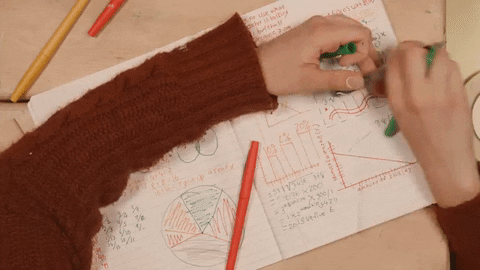
Image Credit: SoulPancake from Giphy
7. Focus on What You Don't Know
When studying, it's important to focus primarily on the areas where you’re lacking confidence, as opposed to the things you already know. While it's always tempting to do the latter, as studying what you know makes you feel good about yourself, it's harmful in the long run, as will cause you to neglect areas where you need to improve.
It may be difficult at first, but focusing on what you don't know will ultimately increase your confidence in all areas of the subject you’re studying.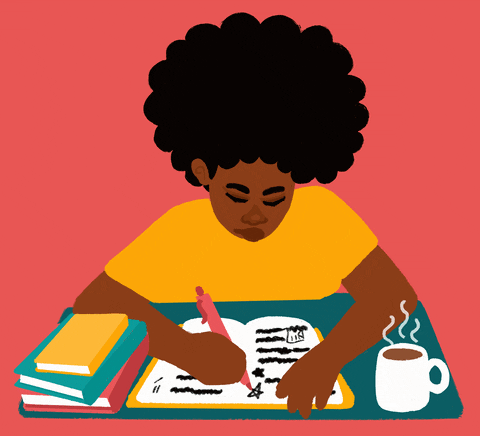
Image Credit: Ari Bennett from Giphy
8. Download Study Apps
You may find using study apps to write and store notes more useful than writing them down on paper. Study apps enable you to keep all of your work in one easily accessible place and to study wherever you are. This will in turn help you utilise your time more efficiently. For example, if you're at the bus stop waiting to go home, you can pull out your phone and revise some notes to pass the time.
Quizlet is a great app for people who revise using flashcards. It has a feature that allows you to test yourself and focus on the areas you're repeatedly getting wrong. GitMind is another good study app that allows you to create mindmaps and outline essay plans.
If you don't think either of these study apps is for you, then simply type in study on the app store and take a scroll — there are dozens of study apps out there, making it almost guaranteed you'll find one that suits you.

Image Credit: Max from Giphy
9. Try Blurting
Blurting is a revision method which has seen a spike in popularity among students in the last few years. This method involves going over your notes before putting them away and writing down all the information that you can remember. You can then return to your notes to see what you remembered and what you forgot. This technique will help cement information in your long-term memory due to the use of active recall and also show you the areas where you're weaker and need to revise further.
This is a great revision method to use when you have exams around the corner and need to quickly establish your strengths and weaknesses.

Image Credit: Kid Quill from Giphy
10. Consolidate Notes
This tip may seem obvious, but it's one a surprisingly large number of people fail to do. Consolidating notes involves only including information that it's imperative you know, and nothing extraneous. Don't worry about having aesthetically pleasing notes — it's hard to hear, but pretty doodles aren't going to get you good grades!
Jotting down only key information will ensure you don't waste precious time memorizing information you don’t need to know and ensure what you do need to know sticks in your head.
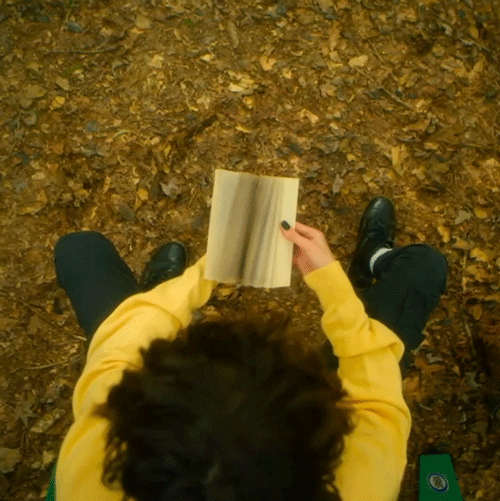
Image Credit: Glaive from Giphy
11. Reward Yourself
And now for the final tip: remember to reward yourself! If you’ve just had a particularly long study session, why not treat yourself to a coffee or a slice of cake? The reward doesn’t have to be huge — the important thing is you’re reminding yourself that you’re doing a great job and keeping your motivation up.
Rewarding yourself is also a good way to prevent procrastination. Instead of saying to yourself that you’re going to watch ten more minutes of your favorite television programme and then work, tell yourself that after you’ve done a few hours of studying, you can watch a whole episode.

Image Credit: NBC from Giphy
Hopefully, these tips will help you take your studying to the next level, and ensure that you're studying in the most effective way possible. It takes time to find a study regime that works for you, but don't give up! Remember: studying is a skill, one you can—and will!—get better at.





